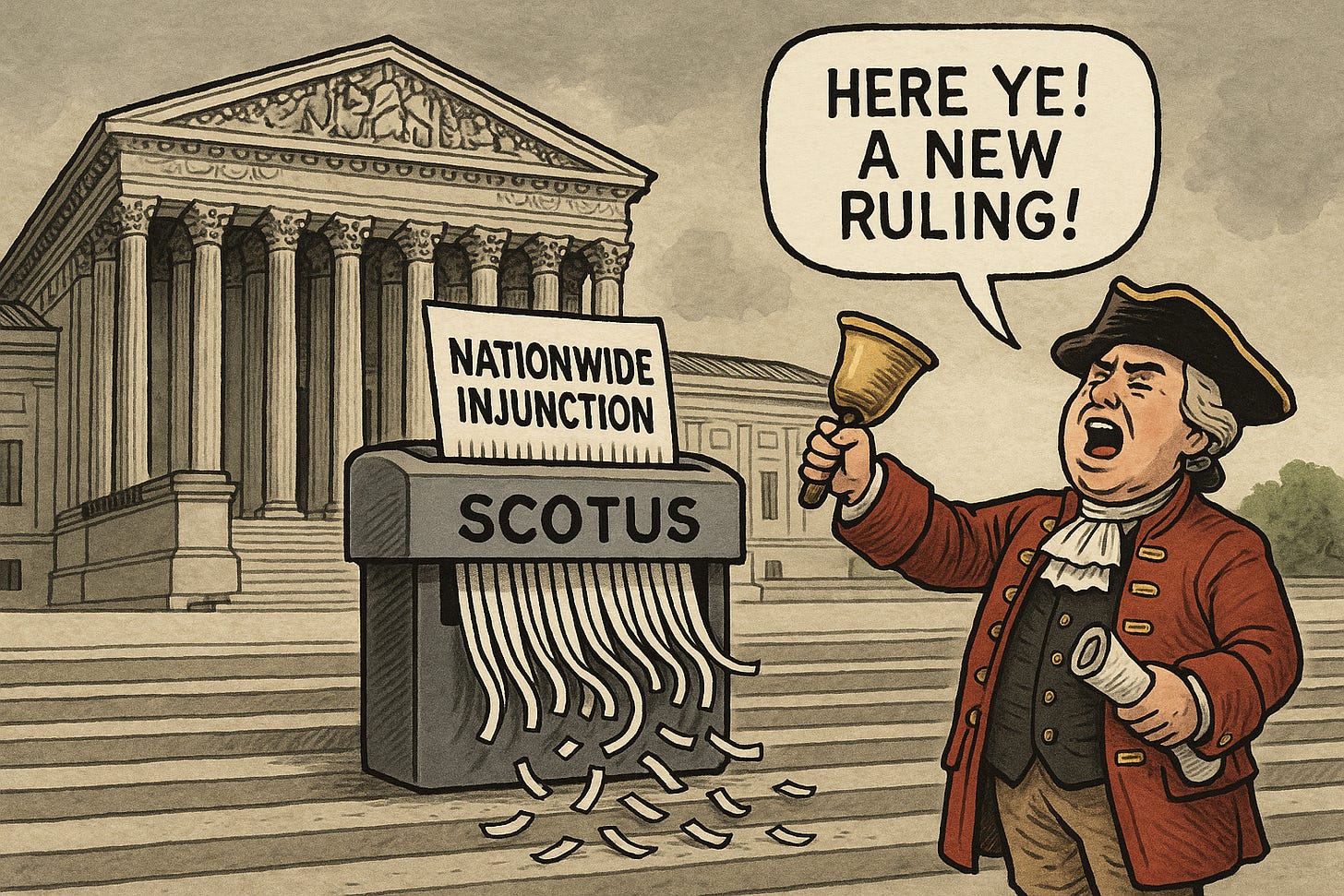Supreme Court Ruling Allows for Immediate, Increased Immigration Enforcement
Yesterday’s ruling tossed a lower-court injunction on the Trump Administration being able to depart illegal immigrants to third countries.
Much Needed Victory for Immigration Enforcement
Yesterday the Supreme Court swept away a lower court obstacle that had been playing a role in stepping up the pace of deportations of illegal immigrants. In a swift, unsigned decision, the justices put the brakes on a Massachusetts judge’s injunction that was forcing the Trump administration to jump through endless procedural hoops before removing people to third countries.
This wasn’t just any routine legal squabble—it was about whether America can enforce its immigration laws, not just at the point of entry, but in dealing with people who are in the country in violation of federal law. With at least five justices backing the decision, the Court seemed to recognized what anyone paying attention already knows: we’re facing a crisis with roughly 11 million people living here illegally, including millions in California alone.
Breaking Through the Bureaucratic Maze
Here’s what happened: Back in February/March, the Department of Homeland Security rolled out a policy allowing deportations to other countries when direct repatriation to their country of citizenship wasn’t possible. Makes sense, right? But Judge Brian Murphy, a 2024 Biden nominee to the court, threw up a roadblock after four illegal immigrants filed suit, demanding lengthy screenings and advance notice that would have made the whole process unworkable.
The Court’s decision to pause that injunction means we can finally start chipping away at the massive deportation backlog that’s been building up. It’s not just about numbers on a spreadsheet—this is about public safety and getting control of a border crisis that’s been allowed to fester for too long. In additional to the principle at stake here, a little something called fidelity to the rule of law.
The Predictable Dissent
Justice Sonia Sotomayor, joined by Justices Kagan and Jackson, wrote a dissent complaining that “by rewarding lawlessness, the Court undermines that foundational principle” of the rule of law. The irony is rich—she’s worried about lawlessness while defending a system that’s been enabling millions of people to flout our immigration laws.
Sotomayor raises concerns about torture risks in places like South Sudan, and look, nobody wants to see people harmed. But here’s the thing: this stay is temporary, giving the appeals process time to work while not completely hamstringing enforcement. Sometimes you have to balance competing concerns, and the scales have tipped way too far toward paralysis.
Why the Emergency Docket Matters
The practical advantage of the Emergency Docket is that it can cut through the endless delays and appeals that can tie up critical government functions for months or years. When the Solicitor General argues that lower court interference is causing diplomatic “havoc,” the Court can act quickly.
Sure, some people complain about the lack of transparency when justices don’t sign their names to these decisions, but in this case speed matters, when you’re trying to manage the results of decades of serial violations of our immigration laws. We need a balanced process, not one that grinds to a halt because of bureaucracy.
What This Means for America
If you live in California, where millions of people are here illegally, this ruling could finally provide some action on getting these folks back home. Sanctuary cities will probably dig in their heels and resist, but federal law is federal law.
Now, here’s where we need to be smart about this: we absolutely cannot afford to deport American citizens or legal residents mistakenly. That would be a disaster that would undermine everything we’re trying to accomplish. We need rock-solid verification systems, period.
But let’s be honest about the challenge we’re facing. We’re talking about helping millions of people who broke our laws return to their home countries. It’s a massive undertaking that requires both compassion and efficiency. The big question is this: how do we maintain due process without making deportation so cumbersome that it becomes practically impossible?
That’s the balancing act the First Circuit must wrestle with as this case progresses. The stakes couldn’t be higher—not just for immigration policy, but for whether America can still enforce its laws.
For the Legal Nerds
Want to read it for yourself? The full Supreme Court ruling is here.
I already have an opinion piece in the can for tomorrow morning on the topic of starting to meaningfully deal with the millions of illegal immigrants in our country. (I wrote stuff on the cross-Atlantic flight to Greece, where my family and I are finishing up a grand two-week vacation!)



